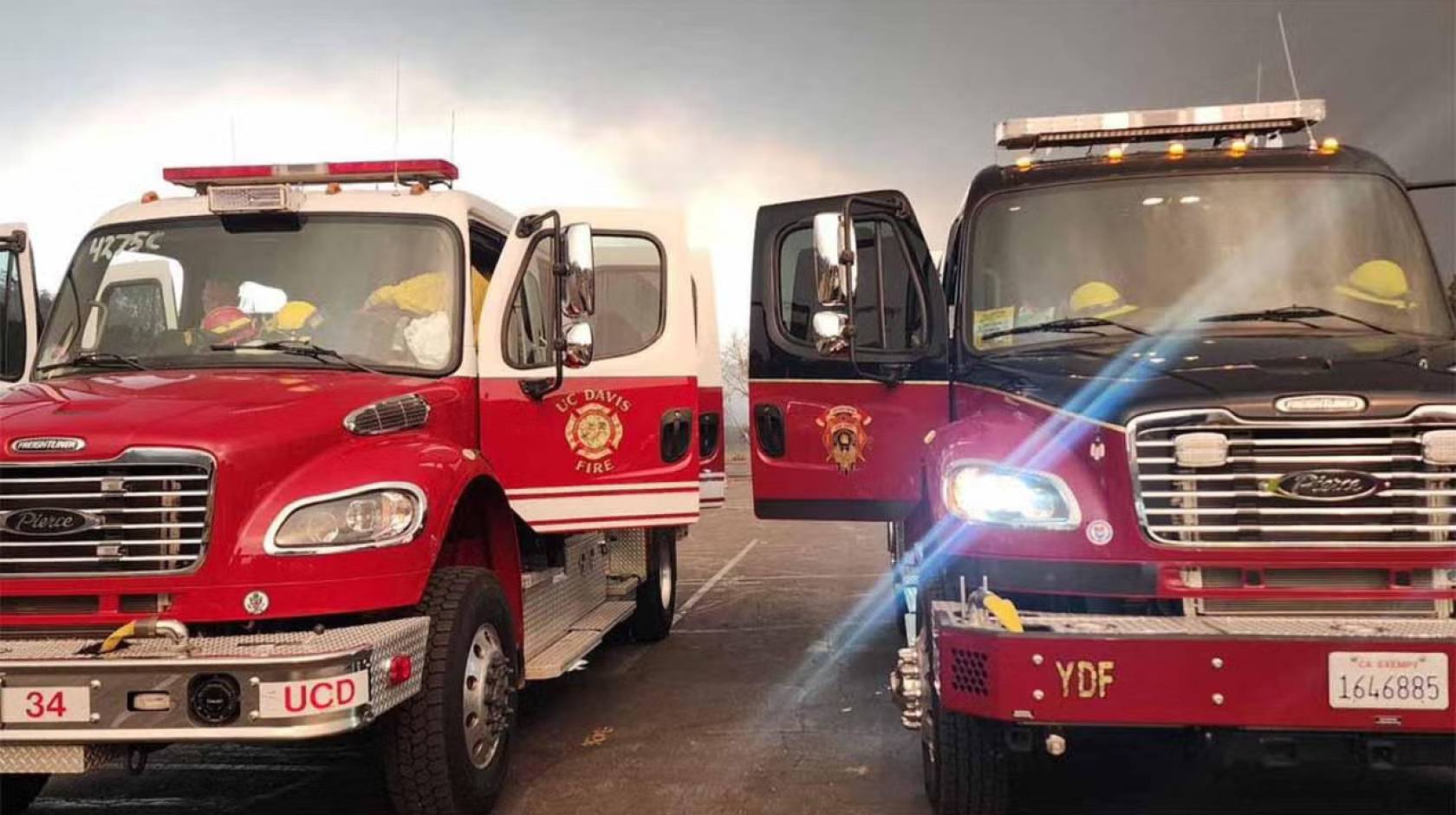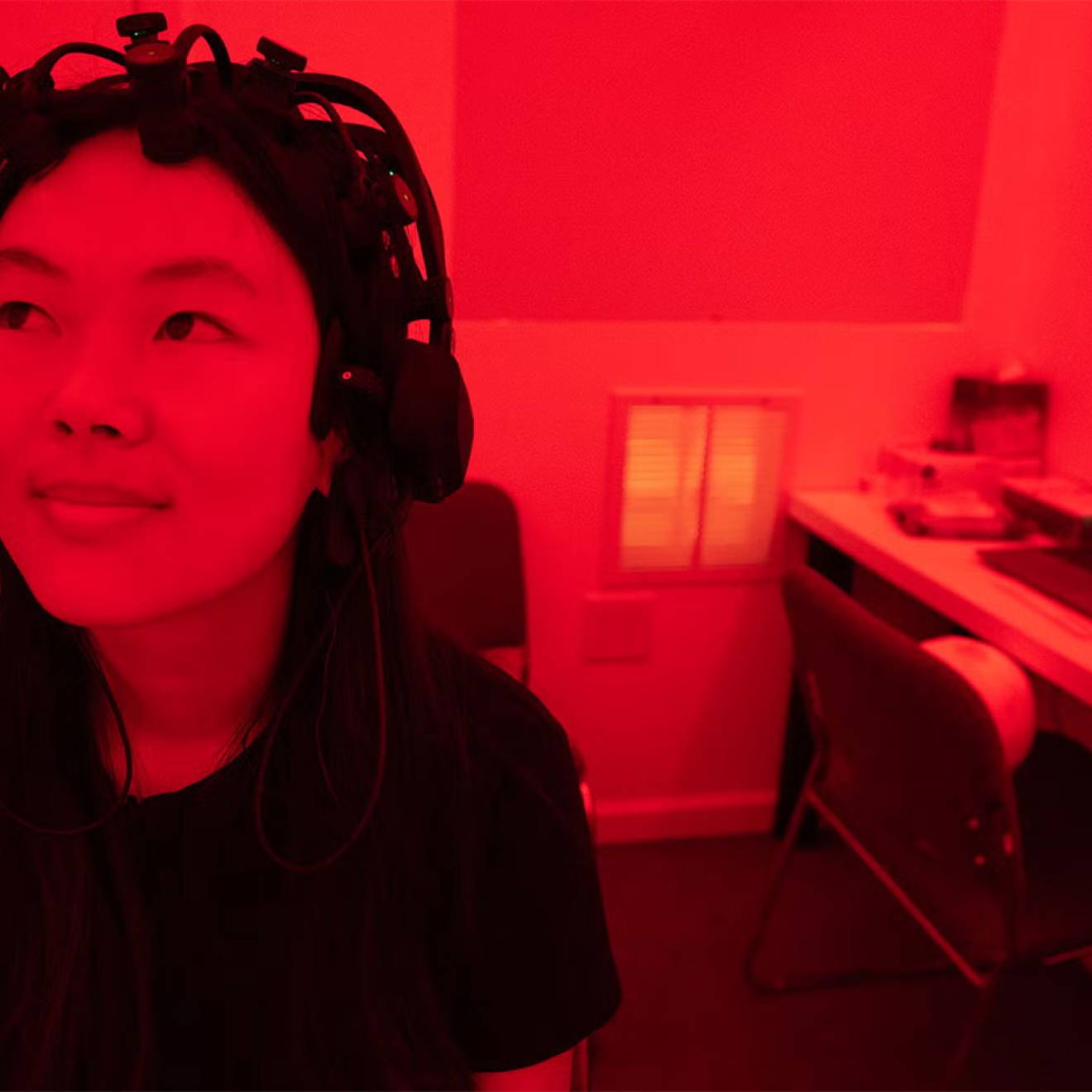UC Newsroom

The devastating wildfires ripping through Los Angeles County have deeply affected the UC community: Many students, staff, faculty and alumni have lost their homes or have been displaced by fires. For others, their loved ones may be in harm’s way, or work or school have been disrupted by evacuations and power outages, even as the threat of wildfire continues to loom.
But amid the heartache, the UC community has jumped in to help — from campus first responders joining the fire fight to students organizing food and clothing drives for those who have lost their homes.
It remains a very fluid and changing situation, but we’ve compiled links and resources for staying up with the latest, along with a sampling of information on how you can help:
What’s happening at UCLA
UCLA is in close proximity to the Palisades Fire, but it is not currently in an evacuation zone. Classes are being held remotely, and the campus is publishing frequent, comprehensive updates on wildfire status, campus news and community resources.
You can find maps of the fires and evacuation zones through the Los Angeles County Emergency Map.
UCLA leaders are holding a series of virtual town halls to provide students, parents and employees a forum to learn more about fire planning and get answers to questions.
Emergency health care and shelter
UCLA Health employees are working around the clock to treat patients at UCLA hospitals and clinics. The university is also providing shelter for UCLA employees and others who have lost their homes to the fires, utilizing vacant faculty housing units, UCLA’s South Bay campus and the Luskin Conference Center. In addition, campus organizations have been distributing free meals and other support, and the facilities team has adjusted operations to preserve water for first responders.
A FEMA Disaster Recovery Center for Angelenos impacted by the fires has also been set up at the UCLA Research Park (formerly the Westside Pavilion). The center will serve as FEMA’s central hub for evacuated residents on the Westside, offering aid to those who have lost their homes, businesses or vital records.
Those seeking shelter or disaster relief services in Los Angeles can find them here.
Air quality
You can get real-time updates on air quality at the UCLA campus on the UCLA AirQual website. And if you’re in an area affected by wildfire smoke, learn how to protect yourself.
First responders
First responders from other UC campuses have traveled to Los Angeles County to join those on the front lines. The UC Davis Fire Department’s Brush Truck 34 left campus last week as part of a Yolo County strike team and is currently assisting with the battle against the Eaton Fire. Meanwhile, Interim UC Davis Fire Chief Nathaniel Hartinger has joined coordination efforts on the UCLA campus as it operates under emergency status.
The UC Irvine Police Department has also joined the Los Angeles Fire Department, Calfire, the Pasadena Police Department and other first responders on the Eaton fire, patrolling evacuated areas in Altadena and Pasadena to deter looting.
UC Irvine and UC Riverside, as well as multiple California State University campuses, are standing at the ready to assist with housing and transportation if the UCLA campus comes under an evacuation order.
UC San Francisco has donated 1,000 N95 masks for California National Guard service members deployed to Los Angeles.
Relief funds and donation drives
If you’d like to make a financial contribution to help those in need, several funds have been set up for UC students, faculty and staff affected by the fires, and new funds continue to emerge.
UCLA Bruin Wildfire Relief
Supports students, staff and faculty who face hardship due to the fires with disaster relief aid.
American Red Cross | UCLA Health
UCLA Health’s created this dedicated fund to support the efforts of the Red Cross in providing emergency shelters, meals, medical care, emotional support and recovery planning services for impacted community members.
UC Berkeley Student Emergency Fund
Provides students with immediate support to cover personal and academic expenses during an emergency.
UC Davis Foundation Board Student Fire Relief Fund
Supports students who have been impacted by any natural disaster, including wildfires.
UC Davis Staff Emergency Fund
Aids staff members in times of personal hardship with grants of up to $1,000.
UC San Francisco Emergency Funding
Emergency loans and rapid rehousing are available for students with financial hardship due to unexpected events.
Help for UC staff
The university is providing a range of resources and support for employees impacted by the fires, including assistance replacing lost prescriptions and documents, accessing medical care and emotional health support, filing claims for loss of life, property, or disability, and accessing retirement savings for emergencies and legal resources.
Student-led donation drives
Students are also taking an active role in helping at a grassroots level. At UC Santa Barbara, for example, the Student Athlete Advisory Committee has organized a local donation drive to collect clothing, food and more for those who have lost their homes or are displaced, and the Fashion Club is holding a clothing drive to benefit the Red Cross and shelters around Los Angeles.
Beyond UC, here’s how you can donate, help, and find assistance.
Student well-being
UCLA is actively in communication with the campus and greater Los Angeles communities and is providing resources of all kinds for its students and employees.
Beyond UCLA, other UC campuses have reached out to students from Los Angeles and Ventura counties with support and resources for coping with trauma and anxiety. It’s an exceptionally difficult time for students whose homes or communities are in harm’s way.
Undergraduate campuses are offering a range of mental health resources for all students, from community drop-in sessions and wellness activities to 1-1 counseling. Campus supports vary — contact student affairs to find out what’s available.
Undergraduate student affairs offices
Find more resources for student health and well-being across UC's ten campuses.
Campus resources
Beyond mental health, students affected by the wildfires have a range of other urgent needs, from legal aid to housing, food and funds. All campuses have a Basic Needs Center where students can find help with food and shelter, and many also offer short-term emergency loans or emergency grant programs. Each UC has a range of different resources — check with student affairs to find out what’s available.
Animal care
The California Veterinary Emergency Team (CVET) out of the UC Davis School of Veterinary Medicine is on alert and ready to provide veterinary assistance if regional programs in Southern California aren’t able to care for all the animals injured in the fires. CVET works in partnership with local authorities in all 58 California counties to provide animal care.
At UC Davis, Rachel Herstik, a large animal technician at the Veterinary Medical Teaching Hospital, is leading a pet supply drive to help displaced animals in her hometown of Altadena. From horse blankets to leashes, collars, and dog and cat food, she has collected a U-haul’s worth of supplies to be distributed at evacuation centers and Pasadena Humane. Get information on how to donate pet supplies.
In another UC Davis–based aid effort, Patrick Hardy is traveling to Los Angeles County to help the 107 beekeepers in the Palisades and surrounding evacuated areas. A master beekeeper in the UC Davis California Master Beekeeper Program, Hardy also founded Bee Platoon, a nonprofit dedicated to helping beekeepers during natural disasters.
At UC San Diego, undergraduate student Evan Gervase started a GoFundMe with the goal of sending a quick infusion of cash to Los Angeles County animal shelters. Pasadena Humane, for instance, had already taken on 400 injured animals within the first 48 hours of the Eaton Fire.
Fire Network
The UC Agriculture and Natural Resources Fire Network, a collaboration of two dozen of California’s leading wildfire experts, has been providing public safety information through social media in the past week. Hundreds of thousands have turned to the Fire Network for guidance on preparing a go-bag to be ready for evacuation, reducing exposure to toxic wildfire smoke, and what to do in the terrifying event that you become trapped by a fast-moving wildfire.
ALERTCalifornia
UC San Diego’s ALERTCalifornia public safety program currently manages more than 1,140 cameras across the state. Emergency managers as well as the public are utilizing these cameras day and night to monitor the devastating fires around Los Angeles. ALERTCalifornia’s camera feeds are incorporated into CAL FIRE’s incident website and can be viewed live any time at cameras.alertcalifornia.org.
Causes and effects
From climate change to housing impacts in fire’s aftermath, UC researchers are also helping the public gain a better understanding of the causes and effects of wildfire.

